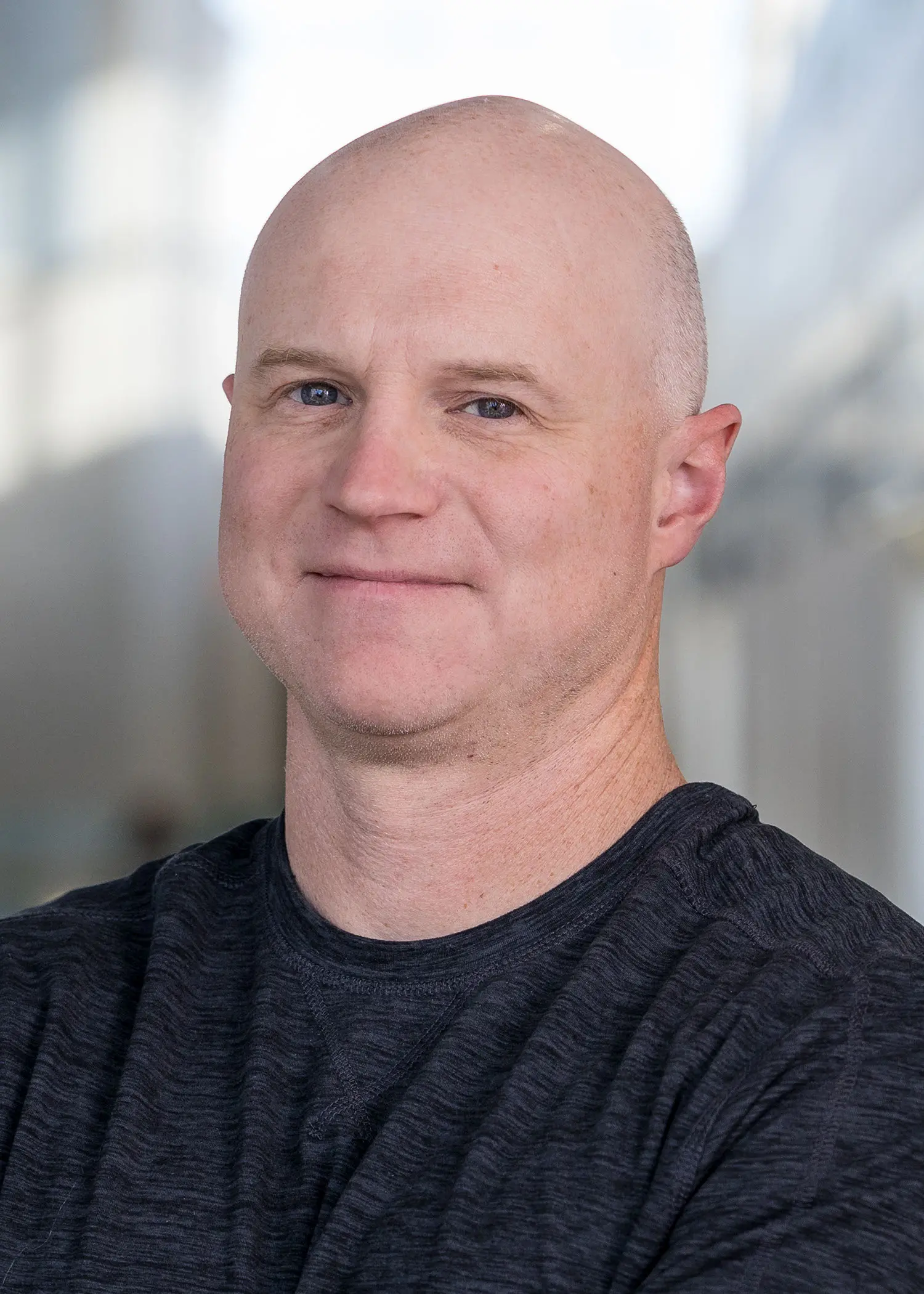The rapid development of mRNA-based vaccines against COVID-19 was a gamechanger in the global pandemic. The vaccines employ messenger RNA to direct cells to produce a protein from the surface of the virus—triggering an immune response that preps our body for the real thing.
These vaccines are the result of decades of incremental mRNA research (some of which earned two scientists the 2023 Nobel Prize in medicine). Multiple estimates show the preventative treatments have saved millions of lives.
There’s just one problem: COVID vaccines, as well as other mRNA-based therapies for cancer, require cold-chain storage to maintain their potency.
“It sounds like a trivial problem, but it’s actually quite a tremendous problem,” says William Murphy, a professor of biomedical engineering and orthopedics and rehabilitation at the University of Wisconsin-Madison. “If you’re trying to get these to sub-Saharan Africa, you’re going to have substantial challenges.”
 William Murphy
William Murphy
Murphy and his lab members believe they’ve found a viable alternative that could allow mRNA therapeutics to be stored at room temperature. In a new paper in the journal Acta Biomaterialia, the researchers detail how using mineral coatings can maintain mRNA activity for up to six months. With that kind of preservation, mRNA therapeutics—including vaccines against infectious diseases and emerging treatments for cancer and tissue regeneration (the latter another Murphy lab project)—could be stored on the shelf at local clinics, allowing them to reach lower-resourced communities across the country and world.
Study lead author Joshua Choe, an MD/PhD student in Murphy’s lab, screened 40 different mineral compositions to optimize their ability to maintain the mRNA stability in simpler formulations than clinically deployed vaccines. In the end, he identified a composition with the suitable amount of citrate and fluoride that maintained the potency of freeze-dried mRNA complexes. He’s now applying the approach to similar lipid nanoparticles used in COVID vaccines, with promising early results. The group has submitted a provisional patent based on the work through the Wisconsin Alumni Research Foundation.
“All the way to six months, you’re maintaining that activity, whereas without using our mineral to store those mRNA therapeutics, you lose quite a bit of the activity after two weeks, and then it declines to almost nothing,” says Choe, who hopes to work as an orthopedic surgeon and researcher after graduating.
The approach draws inspiration from ancient fossils’ documented ability to preserve DNA and proteins. Scientists successfully extracted DNA to analyze the genome of “Denny,” an estimated 90,000-year-old hominin whose remains were found in a Russian cave in 2012. In another find in Tanzania, researchers found intact proteins in ostrich eggshells that date to 3.8 million years old.
Murphy’s lab has been using minerals to stabilize biological molecules for various biomedical applications for about 15 years, and Choe saw an opportunity to apply the tactic to mRNA therapeutics while working in the lab during the lockdown days of winter 2020.
In addition to further demonstrating their approach’s effectiveness with mRNA vaccines, Murphy and his group are pursuing its use for tissue regeneration, particularly for treating spinal cord injuries, wound healing and regrowing cartilage, muscle and bone.
“We want to be able to achieve it so you can literally take a treatment off the shelf, apply it to a patient and stimulate tissue regeneration,” says Murphy.
William Murphy is the Harvey D. Spangler Professor and H.I. Romnes Faculty Fellow. He is also the founding director of the Forward BIO Institute at UW-Madison. Other authors on the paper include Murphy lab members Hannah Brinkman, a DVM/PhD student, and Jae Sung Lee, a staff scientist. Funding for the research came from UW-Madison alumni philanthropists Mike and Mary-Sue Shannon, as well as the National Institute on Aging of the National Institutes of Health (award number F30AG077748 507), NIH award TL1TR002375 and the UW-Madison Medical Scientist Training Program award T32GM140935.
Top photo: Professor William Murphy and PhD student Joshua Choe. Photo by: Tom Ziemer